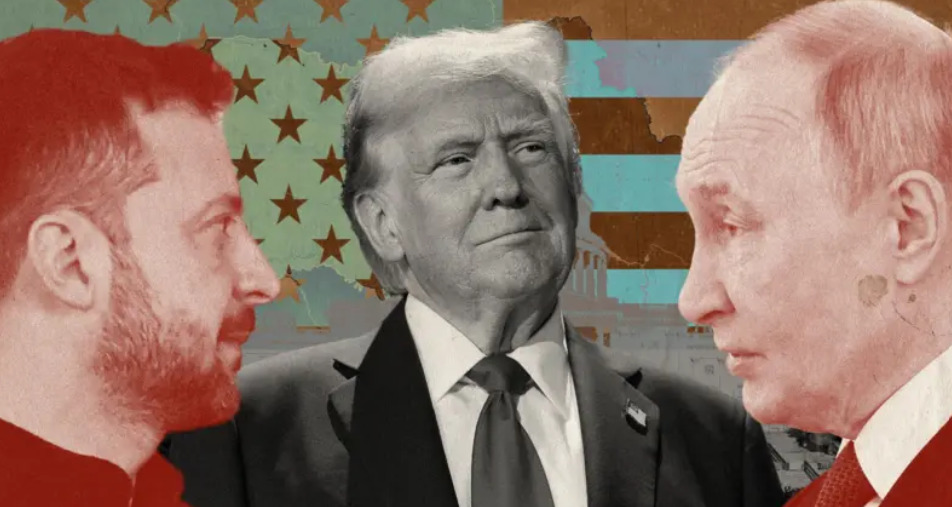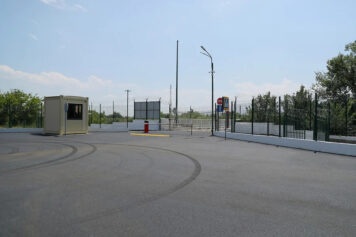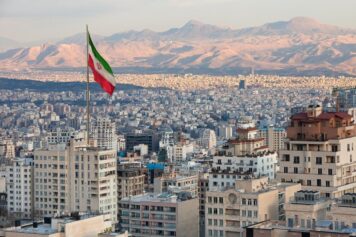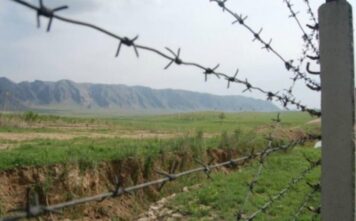Peace at the cost of mines: What will Putin and Trump agree on?
18.02
2025
Everyone is trying to use the conflict situation created in the world to their advantage to gain a favorable position, which cannot be said about the current authorities of Armenia.
Everything spins around the Middle East and Eurasia, and Syria is not the only collision point of Russian-American influence. Alongside Syria, there is the demolished Ukraine, which is the main motive for the formation of the new world order, the South Caucasus, and so on. In the next few months, the Russian-American tensions will largely be resolved, and the fact will remain that the only irreparable losses are borne by the Ukrainian people, “thanks” to their shortsighted leadership, which, succumbing to the illusions shrouded in empty promises of NATO and EU membership, sacrificed its own state. Ukraine is the second-largest country by territory in Europe after Russia. A state that had 12 percent of the world’s wheat basket, 50 percent of sunflower oil, and fairly large mineral deposits has now lost one-fifth of its territory, vast mineral resources, and has suffered hundreds of thousands of casualties. It has given 12 million refugees and migrants to Europe, has most of its infrastructure razed to the ground, has fallen into huge debts, and lost its trillions of wealth—stocks of rare metals, the proceeds from which could have restored the devastated Ukraine—and is now facing the threat of disappearing from the world’s political map, because its elected leader and his team believed that they could become members of NATO and the EU under Russia’s nose, or worse still, they believed that the U.S. would be drawn into a war against Russia and fight for Ukrainian democracy.
The U.S. and Russia—no matter how deep-seated their apparent contradictions are, no matter how they exaggerate them for the outside world and escalate the situation—are guided not by affection or antipathy, but by the logic of securing vital, strategic interests, resolving issues through open or secret diplomacy. As great powers enter into major wars, suffering enormous reputational, material, and technical losses, they actually wage war solely to increase their influence, territory, and to prolong the use of resources for favorable outcomes. It is absurd to think that billions of dollars spent by the U.S. or Russia were wasted without a forecast for their return. They would not be “immersed” in the Ukrainian quagmire if they did not anticipate at least a tenfold return on their investments (for example, the U.S. investment exceeds $35 billion). The priority now is the Trump-Putin talks, the success of which could have a positive impact on all regions. The only victim, unfortunately, will be Ukraine, which will remain in a state of political and economic coma for years to come, while the European Union and other NATO members will pay for Zelensky’s reckless stance, inadequate behavior, and fatal adventurism.
The U.S. president has spoken about Ukraine’s huge debt. It is obvious that Trump primarily sees the repayment in Ukraine’s rare metals, which are used in global military industry, advanced technology, aerospace research, rocketry, submarines, radar, electric vehicles, electronic devices, and fighter jet production. These rare metals are mainly possessed by three countries in the world—Russia, China, and Ukraine, with China holding over 90% of the resources. American military-industrial enterprises import 80% of these metals from China, and if Beijing decides to respond harshly to Washington’s trade restrictions, a lot could change in the world. This is one of the main reasons why no U.S. administration has escalated relations with China to the point of crossing mutual red lines. Additionally, China passed a law last week that restricts the export of these rare metals.
Ukraine has rare metals worth $10 trillion. This amount could be used to build a new Ukraine and restore the infrastructure razed to the ground as a result of the war. According to the World Bank, the war has cost Ukraine more than $500 billion to date, of which $150 billion refers to destroyed infrastructure. Russia has managed to acquire 70% of the rare metal mines in this war. Now, Trump demands the remaining 30% as compensation for the aid given, amounting to $60 billion. In other words, Washington demands 30% of the rare metals, which currently have a market value of $3 trillion, in return for the aid it has provided. Let us note that recently Trump announced that Ukraine might one day become part of Russia.
It is a fact that great powers theatrically fight each other, impose sanctions, but ultimately come to an agreement.
Currently, Putin has put forward seven conditions for resolving the issue, and Washington seems to have a preliminary agreement on these. Meanwhile, Trump has put forward four conditions for initiating negotiations with Russia. They are as follows:
Provision of minerals;
Lowering the age of compulsory military service in Ukraine from 25 to 18;
Election of a new president;
No further aid to Ukraine.
At least two of these conditions align with Moscow’s demands. And Zelensky is already well aware that sitting at the negotiating table with a victorious Russia means negotiating the terms of capitulation. So, what does Russia demand with its seven conditions?
Ukraine declares that it will not join NATO;
Ukraine renounces all territories that were taken during the war (these are the territories where 70% of those rare metals, worth $7 trillion in the market, are located);
New presidential elections;
Restrictions and control over Ukrainian weapons;
Ukraine declares neutrality, that is, it does not join any military-political alliance;
Ukraine cannot deploy any piece of NATO’s nuclear arsenal—missiles or weapons—on its post-war territory, like Poland, Romania or the Baltic States;
And most humiliatingly, if Kyiv decides to hold or participate in any military exercises, it must inform Moscow and get its consent.
Summary: It turns out that Ukraine was drawn into a devastating war and lost everything, while great powers traded, gave a little applause to the sovereign Zelensky, and in the end sold favors, playing the role of benevolent kings: If you want anything to remain of Ukraine at all, you must concede, surrender, and come to terms with all your losses. In fact, after the war, Ukraine will have more limited sovereignty, for which it fought. Unfortunately, Armenia, as if not learning lessons, is moving along this destructive path of Ukraine, putting its sovereignty at risk. It is a harsh reality.
The General Aspirations of Superpowers in Syunik
Syunik also attracts the attention of superpowers with its mines. Thus, the region possesses 100,000 tons of uranium reserves, which is approximately the same as in the whole of Russia, containing almost 7% of the world’s molybdenum reserves. Worldwide, there are about 11,500,000 tons of molybdenum, of which about 800,000 tons are located in Syunik with a total value of about $15 billion. This is equivalent to Armenia’s budget for 50 years, based on current conditions. Syunik Province has 1.5 billion tons of iron, which is about $883 billion—the military budget of Armenia for about 3000 years. There are 4 million tons of copper in the region, which is about $36 billion. The region has 238 tons of pure gold and 16 million tons of gold ore reserves, with a value of about $13 billion for pure gold alone, not including the value of the gold ore reserves. In addition, the region has huge deposits of aluminum, platinum, arsenic, antimony, mercury, zinc, tungsten, titanium, coal, peat, crystals, diamonds, and other minerals. More than 50% of Armenia’s mineral waters are located in Syunik Province.
Syunik is also politically a major obstacle to the implementation of the Greater Turan, as it separates Turkey from Azerbaijan and the Turkic republics of Central Asia.
Syunik is the only geographical area that connects Iran (and through it India, where more than 1.5 billion people live—20% of the world’s population) with Europe, bypassing Turkey. With the loss of Syunik, they will find themselves in geopolitical dependence on the “Turkic world” led by Turkey.
These are the main factors that make Syunik so important for the superpowers and the states of the region.
Let us remember that Nzhdeh saved Syunik with his warriors fighting against Turkey, Azerbaijan and Soviet Russia, which is why he remains a “persona non grata” in these three countries. We do not have the right to lose the “diamond” of our homeland due to the shortsighted policy of our authorities.





